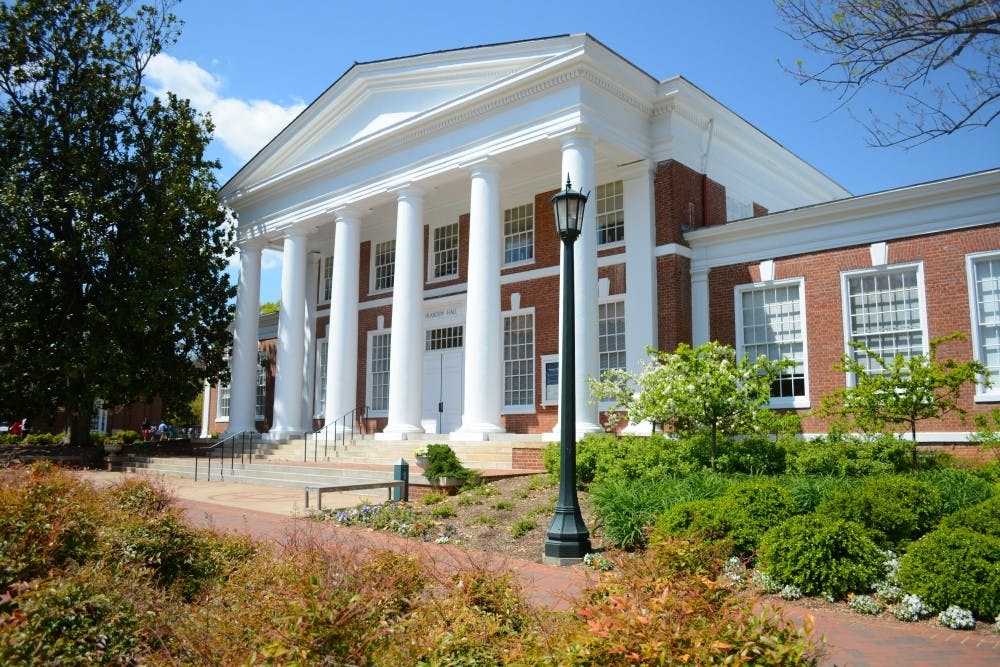The recent admissions scandal embroiling the University, reported by The Cavalier Daily on April 3, has since led to discussions about the true nature of the admissions process at elite institutions. In the FOIA documents obtained by author Jeff Thomas, there seemed to be a “heads-up list” that the University’s advancement office used to keep track of applicants tied to wealthy donors. On these documents, it is clear the advancement office used a ranking system to prioritize certain applicants, indicated donation amounts and even offered a courtesy waitlist for certain VIP applicants who could not be offered admission based solely on merit. These revelations sparked outrage with some members of the University community and even prompted Student Council to investigate these claims. In a report published by Ian Ware, second-year College student and Student Council College representative, he described that while he was satisfied with the investigation, he was not allowed to meet with key administrators. This move by the University is unacceptable and makes it more difficult for the public to ascertain the truth about its admissions practices.
Ware was not allowed to meet with was Sean Jenkins — one of the key administrators — who the University described as, “the intermediary between the offices of advancement and admissions.” Jenkins seems closely connected to the scandal, and interviewing him would have been invaluable to the Student Council report. It is Jenkins who could have elaborated on his role in the admissions process and provided more detailed insight into the University’s admissions practices. Instead of cooperating, the University seems to have decided it would be in their interest to prevent a more thorough investigation. This stonewalling leaves many lingering questions unanswered.
An example of one of these questions is the uncertainty surrounding the quantity of resources dedicated to helping these students gain admission to the University. This is a point Ware brought up in his report, and while the fact that these resources were used were worrisome, I believe a more explicit call to investigate the scope of these resources is needed. The documents show many students had meetings with high ranking members of the administration, including University President Teresa Sullivan. This evidence demonstrates how involved this office has been in ensuring the children of these wealthy alumni were accepted to the University and is a clear demonstration of where the University’s priorities lie. Considering only seven percent of the student population at the University are low-income students and only 13 percent of students depend on pell grants — a low percentage compared to other public universities — the University should redirect some of these resources to making its community more economically diverse.
Another lingering question is whether applicants from donor families were treated differently by the admissions office. Is there any data showing preferential treatment towards applicants from higher-income donor households at the expense of similarly qualified applicants from lower- and middle-income households? This evidence, or lack thereof, could back up the University by proving students are accepted based solely on merit. Even if the University does not have this data they should work to compile it, so if discrepancies do exist, actions can be taken to rectify them. This data would prove the University has been living up to their policy, which states “[the University accepts] students solely on their academic merit.” Until an investigation is conducted, we should be skeptical about the idea that students are accepted based solely on merit. Until there is evidence to the contrary, it continues to appear as though there are several other factors in play besides merit in gaining admission to this University.
Even if the administration insists on continuing to drag their feet, they may nevertheless be forced to reveal the true nature of their admissions practices. Thomas, who provided these documents to The Cavalier Daily, filed a complaint the U.S. Attorney’s office for the Western District of Virginia. In the filing, he asked prosecutors to investigate the admissions practices at the University. If the University refuses to fully cooperate with student led investigations, they must be compelled to reveal more information.
It is clear a lot of effort went into assisting these students and we deserve more information to determine how accurate these allegations are. We must demand answers from the administration, and the student body must ensure the report published by Ware is not the end of the investigation. The University is not helping themselves by stonewalling a student-led investigation. Instead, they are just making it seem as though there is something they need to hide.
Jacob Asch is an Opinion columnist for The Cavalier Daily. He can be reached at opinion@cavalierdaily.com.







